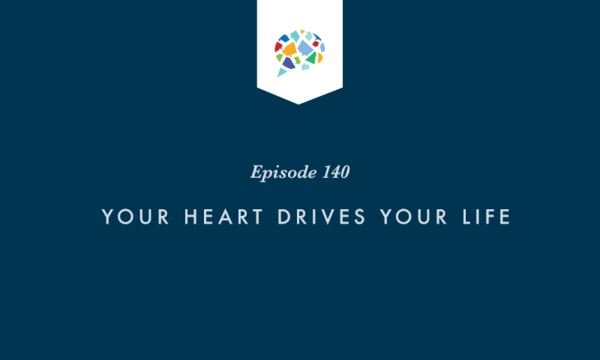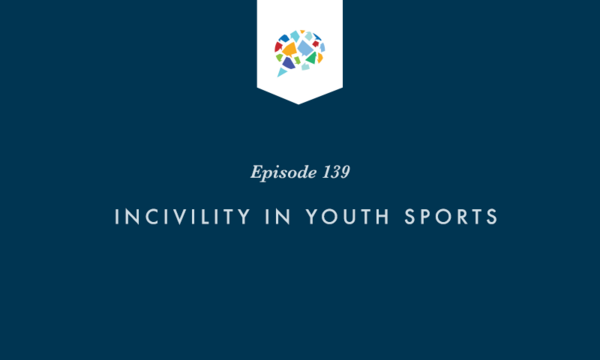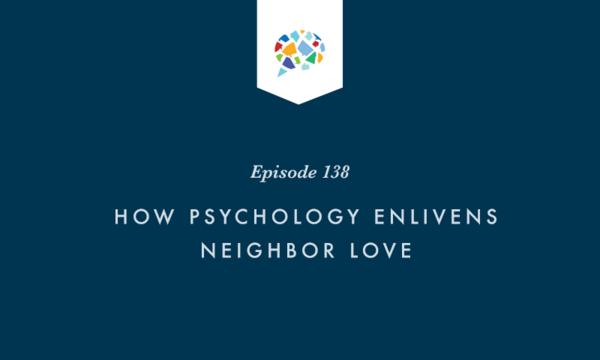
Incivility is a hallmark of our conversations, both within the Church and across the broader culture. Can we foster conversations that deepen and enrich relationships rather than tear people apart? Tim and Rick highlight how today's argument culture has given rise to the Winsome Conviction podcast.
Episode Transcript
Rick Langer: So part of what we want to do is learn to communicate convictions. The other thing we'd like to do is help us be a little bit more thoughtful about how convictions are formed and perhaps even learn some ways in which we might be able to disagree without our convictions, without dividing the body of Christ.
Tim Muehlhoff: Welcome to the Winsome Conviction podcast. My name is Tim Muehlhoff, professor of Communication at Biola University in La Mirada, California.
Rick Langer: And my name's Rick Langer and I'm also a professor at Biola University of Biblical Studies and also the director of the Office of Faith and Learning.
Tim Muehlhoff: Rick and I had a crazy idea. We thought let's do a podcast.
Rick Langer: Who would of thought of it, right?
Tim Muehlhoff: How awesome. How trailblazing is that? No, we love podcasts. We're just like you. We love to listen to good podcasts and there's a million of them out there. So why start another one? Well, we feel like America's in crisis. We feel today that Americans, when they need to talk to each other about immigration, about diversity, about sexuality, about God, we've literally lost the ability to talk to each other. And incivility has now become the hallmark of our conversations and we're not alone in thinking this, Rick.
Tim Muehlhoff: For the past 20 years, The Civility Project has surveyed Americans, asking them about civility. This is what they have come up with. In a time when Americans don't agree about anything, 98% of us feel that incivility is a serious problem, while 68% of us believe that incivility has reached crisis levels and it will undo our homes, our places of business, our churches, and even the fabric of our nation.
Tim Muehlhoff: We would like to enter the fray and offer some ideas of what to do about incivility and to widen the conversations so that we can have good, productive, passionate conversations with each other. We won't always agree, but at least we can be civil and afford goodwill to each other. At least that's what we want to try to do, Rick.
Rick Langer: One other major thing we're concerned about are some of the unique challenges for Christians when it comes time to deal with conflicting convictions. We understand and develop our convictions in some ways that are kind of unique and that leads to some unique challenges. Let me just unpack three of those for you.
Rick Langer: Number one, when it comes time to form a conviction, most of us as Christians don't stop and ask ourselves, "What do I think?" But rather we ask ourselves, "What does Jesus think?" A non-Christian, on the other hand, may simply be going and looking inside a little bit, think "What do I feel? What do I think about this?" Read some books, say, "Yeah, this sounds good to me."
Rick Langer: But our preoccupation at some point is sort of knowing the mind of Christ about this sort of an issue. And of course, that makes it somewhat at odds with one another when you disagree about a conviction that I might happen to have. In effect, what we're saying is you and I read Jesus differently. You got Jesus wrong and you can feel the rising tension when I just say that.
Rick Langer: The other thing that happens that's really kind of a hallmark and a challenge for Christians and sometimes when we're trying to discern what Jesus thinks about an issue, we ended up actually owning convictions that we may not actually like. We might be really happy to get rid of that conviction, but we sincerely feel that this is something that Jesus actually teaches.
Rick Langer: A great example of this might be a conviction you may have about hell, about the possibility that people may actually end up in hell. And this isn't a doctrine that I would have just thought up on a free Tuesday, wondering, Hey, what do we do with those people when they die? Hey, how about a hell? That's not the way it came around. And it doesn't even matter if I happen to like it or not like it. The point is when I read scripture, when I read the words of Jesus, it seems to be there and so I develop a conviction about it almost against my will. So this is an interesting feature of how we form our convictions and it's very, in that sense, Jesus centric.
Rick Langer: Another challenge that we hit as we form our convictions out of reading the word of God and we usually talk about the word of God as being authoritative, maybe we use the word infallible, but whatever it is, we're saying this is what God says in his word and therefore, this is what I want to believe or what I'm going to follow.
Rick Langer: Well, when we conflict with each other, that kind of leads to two unsavory possibilities. Number one, it's possible that I have attached my conviction to word of God, but you just didn't. Maybe because you don't value the authority of God's word, maybe because you care more about what you feel than what God says. Whatever it might be. But it's kind of, as I say, an unsavory possibility.
Rick Langer: The other alternative is that you have somehow misread, misunderstood and are misrepresenting what the word of God says. And of course, the problem of that is that you're not simply a mistaken person, but you become a false prophet. You become a false teacher because you're saying God says something that God does not actually say. And when you make your conviction statements that conflict, you suddenly realize one or the other view must be in some sense of false teacher or perhaps a person who simply has rejected the authority of the word of God. That amps up the disagreement.
Rick Langer: A third issue is that we tend to see ourselves in all of human history is actually part of a bigger kind of a cosmological combat between God and between Satan. It's a great sort of war of the ages. Reformed theologians sometimes call this the great antithesis. It's the opposition between the advancement of God's kingdom and the advancement of the kingdoms of this earth, the battle between the city of God and city of man.
Rick Langer: Well, the bottom line is that we kind of take sides in that, right? We line up with God's side. And if you feel God's side entails particular convictions that you have, and then you're sitting in your church, in the pew, maybe in your own small group Bible study, and the person sitting beside you suddenly begins advocating for some position that you feel is contrary to God's side on this issue. You suddenly feel like, Oh my gosh, somebody from the other side has penetrated into my mind.
Rick Langer: It's a wolf in sheep's clothing. If you were to run with the war analogy, it's kind of like, if you look across the enemy lines, across the battle lines and you see someone in the enemies color and the enemies outfit, your eyes, okay, that's where they belong. If you happen to find one of those folks on your side of the line, well, you capture them and you turn them into a prisoner of war. But what happens when you find a guy who's working for the other side, but he's on your side of the lines, but he's dressed up like one of your soldiers. He's hanging out in all of your meetings and you suddenly realize that this guy isn't an enemy soldier. He's an enemy spy. So all of those scenes, you can feel sort of the rising tension we have because of these dynamics that swirl about how we as Christians form are convictions.
Rick Langer: So part of what we want to do is learn to communicate convictions. The other thing we'd like to do is help us be a little bit more thoughtful about how convictions are formed and perhaps even learn some ways in which we might be able to disagree without our convictions, without dividing the body of Christ.
Tim Muehlhoff: And once these convictions are formed, we're interested in how do you have conversations about those convictions with those outside the Christian community? We have no desire for this just to be a podcast that only speaks to the in-crowd. We want to have great conversations. So we're going to bring on some of the best and brightest non-Christian thinkers that we know of and engage them in a way that we hope will be interesting to listen to and also productive and we want to introduce you to some of the best non-Christian thinkers we know of. Rick, your PhD is in philosophy, right?
Rick Langer: Yeah. One of the things we're thinking and doing and saying, okay, let's just sit down and could we read somebody who we know we disagree with, but read to learn something that might be of value, read to learn them with a hermeneutic of charity. These are some things that we'd like to be able to do.
Tim Muehlhoff: We're going to do segments called bringing you up to speed. Being brought up to speed with our current division in politics today, being brought up to speed on the issue of race, being brought up to speed on the issue of critical race theory, and we're going to bring in experts who will kind of give us the background story of how we arrived here. Christian and non-Christian people, who we feel like are doing it great, and we just kind of want to highlight that. So stay tuned.
Rick Langer: And far too often, we complain about the things that are going wrong because they're so obvious and so we want to make sure we take some time to point out those things that are going right.
Tim Muehlhoff: Now, we're not just a podcast. We're part of a larger project called the Winsome Conviction Project that's being housed at Biola University and it's not just Rick and I are leading this. We're going to be bringing in some of the top experts. We have a team of people who will be doing research for us, administrating our project. We're fully funded for the next five years. And I thought we'd just consider our vision statement as we wrap this up.
Tim Muehlhoff: Our vision is to help heal a fractured church, foster civility and bring compassion to a warring public square and enrich the lives of listeners rather than tear people apart. This is going to be a journey. We're very excited for you to join us. And our commitment is that we are going to respect both the content level of communication, but also the relational level. Let's foster some compassion, civility, and respect for each other, even as we might have some disagreements. So please come join us.
Rick Langer: And you can listen to us on Apple podcasts, Spotify, Google Play, and also you can find us at winsomeconviction.com.
 Biola University
Biola University




